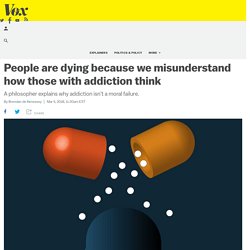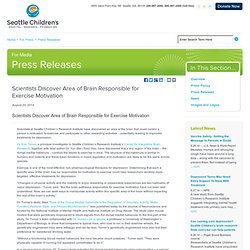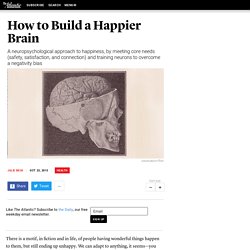

Neurotisism. Power. Experiences. Emotional Psychology. Power. Regret. Multi-task skills. Habits. Introverted. Therapy Metadata. Environmental factora. What Happens to a Factory Town When the Factory Shuts Down? For more than 50 years, life inLordstown, Ohio, has revolved aroundthe G.M. plant at the edge of town. In March, the plant ceased production.These were the last cars off the line. This is the story of what happens to afactory town when the factory shuts down. Early in the morning on Nov. 26, 2018, Dave Green, the president of Local 1112 of the United Auto Workers, which represents workers at a General Motors plant in Lordstown, Ohio, received a call from the plant’s personnel director. Green needed to be at the plant at 9 a.m. for a meeting. The personnel director rarely called Green, and when he did, it was almost always bad news.
Time. Functional disorder. Perfectionism. Resiliency. Empathy. Touch. Cognit process. Forgetful. Self reliance. Memory. Mindfulness. Emotional Intelligence. Addiction. Motivation. Bereavement. Creativity. Consciousness. Mood. Emotions. Stress. Outside Intrusion on brain. Leader traits.
Learning. Core values. Consumer psychology - Manipulation. Productivity techniques. Wisdom. Communication. Contemplating life in general. Relationship. General Mental health. Personality. Decision techniques. Ideas. Adhd. Modern life distractions -pace. Time management.
Conversation. Behavior. The Tyranny of the Perfect Day. Skim reading is the new normal. The effect on society is profound. Look around on your next plane trip.

The iPad is the new pacifier for babies and toddlers. Younger school-aged children read stories on smartphones; older boys don’t read at all, but hunch over video games. Reduce Your Stress in Two Minutes a Day - Harvard Business Review - Pocket. Bill Rielly had it all: a degree from West Point, an executive position at Microsoft, strong faith, a great family life, and plenty of money.

He even got along well with his in-laws! So why did he have so much stress and anxiety that he could barely sleep at night? I have worked with Bill for several years now and we both believe his experience could be useful for other capable, driven individuals. At one time, no level of success seemed enough for Bill. E.O. Wilson on the Upside of Introversion, the Limits of IQ, and Where Ideas Really Come From. He is also a two-time winner of the Pulitzer Prize for General Nonfiction.

Many of his books have gone on to become New York Times bestsellers. One of these bestsellers is Wilson’s Letters to a Young Scientist, which distills 60 years of teaching into a wonderful array of unintuitive and surprising thoughts on creativity, innovation, and scientific progress. I love books from bold, original thinkers because, in the past, such books are the ones that have changed my life. You never finish a book as quite the same person, and — much like how bacteria inject and transfer fragments of DNA to one another — the best books transfer a part of the author’s philosophy into your own head.
A philosopher says we shouldn’t blame people addicted to opioids for their choices. The American opioid epidemic claimed 42,300 lives in 2016 alone.

While the public policy challenge is daunting, the problem isn’t that we lack any effective treatment options. The data shows that we could save many lives by expanding medication-assisted treatments and adopting harm reduction policies like needle exchange programs. Yet neither of these policies has been widely embraced. Money and Confidence are Interchangeable. So, I’m assuming you are here reading this because you want to get yourself some more money.

And since this is Mr. Money Mustache and not a standard financial publication, you’re willing to think about the bigger picture: Are You A High Agency Person? How To Respond When You Hear ‘No’ In 2007, Peter Thiel was outed as gay by the website Gawker.

What Breaking the 4-Minute Mile Taught Us About the Limits of Conventional Thinking. This 8-Picture Test Will Reveal Three Deep Truths About You.
Mental Recreation. Mind hack. Buddihism. Philosophy. Morality. Meditation. Psychology. Depression & Anxiety. Roko’s Basilisk: The most terrifying thought experiment of all time. How to Cope When You and Your Partner Are Falling Out of Love - WSJ. How to Find Evidence to Support Any Argument. How to Use the Secrets of Master Influencers to Get What You Want. How Well Do You Actually Remember Your Life. Scientists Discover Area of Brain Responsible for Exercise Motivation. Scientists Discover Area of Brain Responsible for Exercise Motivation August 20, 2014 Scientists Discover Area of Brain Responsible for Exercise Motivation Scientists at Seattle Children’s Research Institute have discovered an area of the brain that could control a person’s motivation to exercise and participate in other rewarding activities – potentially leading to improved treatments for depression.

Dr. Eric Turner, a principal investigator in Seattle Children’s Research Institute’s Center for Integrative Brain Research, together with lead author Dr. Exercise is one of the most effective non-pharmacological therapies for depression. “Changes in physical activity and the inability to enjoy rewarding or pleasurable experiences are two hallmarks of major depression,” Turner said. Dr. Warning over electrical brain stimulation. Given the option, would you want to think faster and have sharper attention?

Research suggests that electrical brain stimulation kits could have just those effects. But now some companies are selling such devices online, leading to calls to regulate the technology. It may sound too good to be true but scientists say the technology is promising. Transcranial direct current stimulation (TDCS), which passes small electrical currents directly on to the scalp, stimulates the nerve cells in the brain (neurons). It's non-invasive, extremely mild and the US military even uses TDCS in an attempt to improve the performance of its drone pilots.
The idea is that it makes the neurons more likely to fire and preliminary research suggests electrical simulation can improve attention as well as have a positive impact on people with cognitive impairments and depression. It has also been shown to increase performance in a maths task, an improvement which was still in place six months later. 100 Ways To Become More Conscious: How To Raise Your Consciousness. 1.

Connect with nature – Go for a walk in the forest, jungle, field of daisies, or wherever you feel like getting a connection with nature. It is possible to feel at deep sense of peace and oneness when you attempt to connect with nature. As you learn to connect and appreciate nature, you allow your consciousness to rise up. Www.medhelp.org-posts-Neurology-unable-to-focus-when-reading. Has David Birnbaum solved the mystery of existence? How to Build a Happier Brain. There is a motif, in fiction and in life, of people having wonderful things happen to them, but still ending up unhappy.

Can we get our heads around consciousness? – Michael Hanlon. Over there is a bird, in silhouette, standing on a chimney top on the house opposite. It is evening; the sun set about an hour ago and now the sky is an angry, pink-grey, the blatting rain of an hour ago threatening to return. The bird, a crow, is proud (I anthropomorphise). He looks cocksure. Could Your Brain Be Hacked? 10 Mind-Blowing Theories That Will Change Your Perception of the World. Lifehacker. Become Resilient To Deal With Stress. The Power of the Doodle: Improve Your Focus and Memory - WSJ.
Quiz: Find Your Happy Place : NPR Ed. Top Ten Books Every Leader Should Read. How To Look On The Brightside. Magic mushrooms expand your mind and amplify your brain’s dreaming areas – here’s how.
Go.